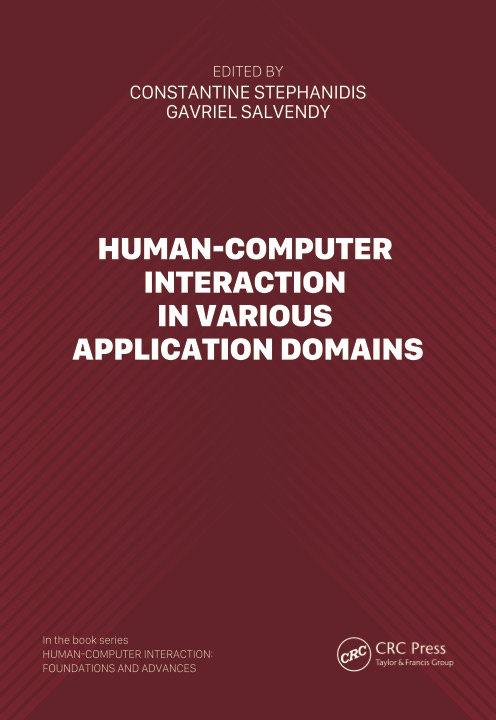
Table of Contents:
- HCI in e-Health
- Well-Being in a Digital Age
- Social Computing
- Computer-Supported Cooperative Work (CSCW), Teleconferencing and Remote Working
- Adaptive Learning, Training and Education
- Player Experience
- Emerging Technologies and Frameworks for Serious Games
- Entertainment and Interactive Media
- Digital Presentation and Interaction with Cultural Heritage
- HCI in e-Commerce
- HCI in Business and Organizations: Digital Transformation with HCI, Metaverse and AI Technologies
- HCI in e-Government and e-Democracy
- HCI in Service Industries
- Big Data Visualization and Visual Analytics
- Dashboard Design
- HCI in the Manufacturing Industries
- HCI in Aviation
About:
This Book examines the pivotal role of HCI in designing interactive applications across a diverse array of domains, including health and well-being, social computing, learning and education, as well as e-government and e-democracy. Each chapter offers valuable insights into HCI research within the respective domain, spotlighting the real-world applications of HCI methods and tools. Digital transformation in business and organizations constitutes an area where HCI is put into practice, with important contributions in cooperative and remote work, big data visualization, e-commerce, manufacturing, service industries and aviation. A significant application domain is that of culture and entertainment, where the book features chapters dedicated to serious games, player experience, entertainment and interactive media, as well as interaction with cultural heritage.
Overall, this book vividly illustrates how HCI theory finds practical application across a wide range of real-world scenarios, offering readers a profound understanding of how foundational theories and methods can be adapted to address the unique challenges within each specific context. Additionally, it crystallizes concepts and approaches into concrete techniques and practices that can be independently applied, irrespective of the particular domain. Furthermore, the book enables readers to explore the evolving landscape of the HCI discipline and identify emerging research topics, driven by the pervasive use of Information and Communication Technologies (ICT) in contemporary application domains.
This book contains 17 chapters, written by 49 authors. The book includes 118 figures, 29 tables, and 2,104 references for documenting and providing supporting data to the presented and discussed information.
Overall, this book vividly illustrates how HCI theory finds practical application across a wide range of real-world scenarios, offering readers a profound understanding of how foundational theories and methods can be adapted to address the unique challenges within each specific context. Additionally, it crystallizes concepts and approaches into concrete techniques and practices that can be independently applied, irrespective of the particular domain. Furthermore, the book enables readers to explore the evolving landscape of the HCI discipline and identify emerging research topics, driven by the pervasive use of Information and Communication Technologies (ICT) in contemporary application domains.
This book contains 17 chapters, written by 49 authors. The book includes 118 figures, 29 tables, and 2,104 references for documenting and providing supporting data to the presented and discussed information.
